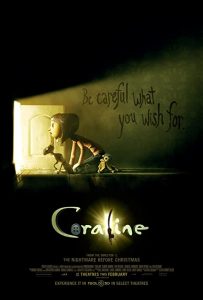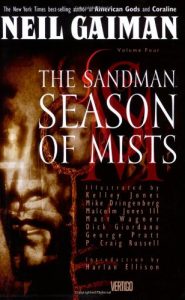 I finally saw Prince Caspian over the weekend, and it was kind of a weird experience. As a fantasy adventure movie, it kind of works. All those kids from the first movie are magically summoned back to Narnia when Prince Caspian, marked for death by his usurping uncle, stumbles across Susan’s magic get-out-of-jail-free horn where she dropped it in the woods while trying to escape his uncle’s army and blows it.[1] Or, considering he wouldn’t have known to, maybe someone gave it to him instead. Or maybe he didn’t know and was just hoping someone would show up to save him? I’m not sure.
I finally saw Prince Caspian over the weekend, and it was kind of a weird experience. As a fantasy adventure movie, it kind of works. All those kids from the first movie are magically summoned back to Narnia when Prince Caspian, marked for death by his usurping uncle, stumbles across Susan’s magic get-out-of-jail-free horn where she dropped it in the woods while trying to escape his uncle’s army and blows it.[1] Or, considering he wouldn’t have known to, maybe someone gave it to him instead. Or maybe he didn’t know and was just hoping someone would show up to save him? I’m not sure.
Anyway, there they all are, and it’s been over a thousand years and their whole castle is fallen apart, because evil Spaniards (who we call Telmarines) attacked and subjugated Narnia quite a while ago, driving the magical creatures and talking animals so far into the forest that they are believed to be extinct, plus nobody has seen Aslan in pretty much that whole time. Although Caspian is heir to the Telmarine throne, the fact that his people want him dead and that plot necessity demands it combine to get all the Narnians willing to support him. His enlightened reign, he promises, will see his people and the Narnians peacefully co-existing, which one supposes is better than hiding so well everyone thinks you’ve died out.
Then he and the Narnians and the Pevensie kids (aka Kings and Queens of Narnia, aka Peter and Susan and Edmund and Lucy) all get together and have a war against Uncle Miraz and the Telmarine army, with mixed success, all culminating in a grand finale of some kind, as movies often do. So, yeah, that worked.
As the Christian metaphor that one expects from the Narnia property: well, mixed success fits well here, too. There’s a bit about not making a deal with the devil, even if it is the devil you know. And there’s a bit about not ignoring God’s little nudges in your life. Which, okay, I suspect that they maybe aren’t as obvious as seeing a lion waving you over, but that’s how metaphors work, so fair enough. But even though most of the failures in the movie were blamed on not following Aslan, as is a good and proper metaphor, the fact is there was just no real way to tell what it was that Aslan wanted of them. He just sat around waiting for things to be terrible, and then rolled in to save them all, while proclaiming that the whole point of not coming and saving them to start with, as he’d done in the previous movie, is that things aren’t ever the same twice. Except really, what he did was exactly the same, because, after all, the whole point of the metaphor is that ultimately you can’t face the evils of the world without Aslan there to carry you down the beach some of the time.
I mean, if they’d made a show of “I didn’t help you because you never asked me to”, that at least would have been a prayer metaphor, and I could get behind it working, pretty well in fact. But I mean, there was no show. And by ‘show of’, I mean not even a single line of dialogue, which is approximately how much it would have taken. Maybe another line or two of reaction, but this is not a long conversation I’m describing here. This also might have tied into the part where nobody in Narnia really believes in Aslan anymore, since nobody has much seen him in the past millennium, although at the same time, I imagine that the Narnians were looking for him to come help back when the war started and their castle was being smashed and they were doing the extinction-hiding and it had been less than a thousand years since anyone had seen him. (I mean, I don’t know how long, but this is the 10th Caspian, so it’s been a little while.) And since he obviously didn’t show up to help out then, well, that would kind of hurt the metaphor a bit, I guess.[2]
Also, the above review probably contained spoilers, and if you care about such things, you should not have read it.
[1] I just reread that sentence, and as much as I considered rewording it because it loses track of proper antecedents at least twice, I choose instead to let it stand as a monument to my awesome clarity of communication.
[2] I just remembered another complaint. It bothered me when they said that Narnia is only ever right when a Son of Adam or Daughter of Eve rules the country. Even though I understand the whole ‘man shall have dominion over the creatures of the earth’ thing, it’s just, these are centaurs and talking mice[3] and morally conflicted dwarves, and they all seem to have agency, you know, so the concept comes off a lot more as White Man’s Burden to show up from a different, far away place and take care of the poor misguided natives so they don’t screw things up too badly than as the Genesis metaphor that is apparently intended.
[3] To be clear, Reepicheep was in fact awesome. So that’s nice.
 Exciting milestone: we successfully took the kids out to see a movie! The boy was entranced from start to finish, and only had one or two moments of “nope this is too scary I need to yell ‘stop!'”, which is tolerable in the scheme of things, especially for a kid-friendly showing with nobody else in the theater. Likewise, the girl was entranced, but not so much that she wasn’t also mobile. However, the furthest away she got was two seats down and on the floor peeking through the next row’s seats. Which, again, entirely tolerable under the circumstances.
Exciting milestone: we successfully took the kids out to see a movie! The boy was entranced from start to finish, and only had one or two moments of “nope this is too scary I need to yell ‘stop!'”, which is tolerable in the scheme of things, especially for a kid-friendly showing with nobody else in the theater. Likewise, the girl was entranced, but not so much that she wasn’t also mobile. However, the furthest away she got was two seats down and on the floor peeking through the next row’s seats. Which, again, entirely tolerable under the circumstances.
 Back when streaming wasn’t a thing,
Back when streaming wasn’t a thing,  After recently rewatching the other two Narnia movies[1], I have now proceeded to watch for the first time
After recently rewatching the other two Narnia movies[1], I have now proceeded to watch for the first time  During the credits for
During the credits for  You would think that I’d have already read the long-published book
You would think that I’d have already read the long-published book  I finally saw
I finally saw  The Sandman, I said. And I meant it, because that is some damn fine literature. I read the series in 1996 or so, right after they’d all been published as graphic novels, and it was a hell of a ride. Observant visitors may notice the domain name, and wonder if it is a coincidence. (It is not. That’d be pretty funny if it were, though.)
The Sandman, I said. And I meant it, because that is some damn fine literature. I read the series in 1996 or so, right after they’d all been published as graphic novels, and it was a hell of a ride. Observant visitors may notice the domain name, and wonder if it is a coincidence. (It is not. That’d be pretty funny if it were, though.) So, I know what you’re thinking. Hey, why not space these things out a little more evenly, instead of cramming in a bunch of updates all at once, and then you can give fair consideration to each thing instead of just finding a block of time and catching up but cheating on real content. I have a few answers. 1) How dare you? This is absolutely real content. Well, okay, but even if it isn’t, I have a good excuse. 2) I actually watched these two movies right in a row, so I had to take extra time to digest them separately instead of getting them all mixed up together. Also, for the book, I handed it to my dad as soon as I finished it, and I wanted to give him a little breathing space prior to a review that I knew he’d read even though it would have been better to wait until he was done. But I’m well over halfway through the Potter book, and two books behind is too much. So, I got off my ass and here I am.
So, I know what you’re thinking. Hey, why not space these things out a little more evenly, instead of cramming in a bunch of updates all at once, and then you can give fair consideration to each thing instead of just finding a block of time and catching up but cheating on real content. I have a few answers. 1) How dare you? This is absolutely real content. Well, okay, but even if it isn’t, I have a good excuse. 2) I actually watched these two movies right in a row, so I had to take extra time to digest them separately instead of getting them all mixed up together. Also, for the book, I handed it to my dad as soon as I finished it, and I wanted to give him a little breathing space prior to a review that I knew he’d read even though it would have been better to wait until he was done. But I’m well over halfway through the Potter book, and two books behind is too much. So, I got off my ass and here I am.